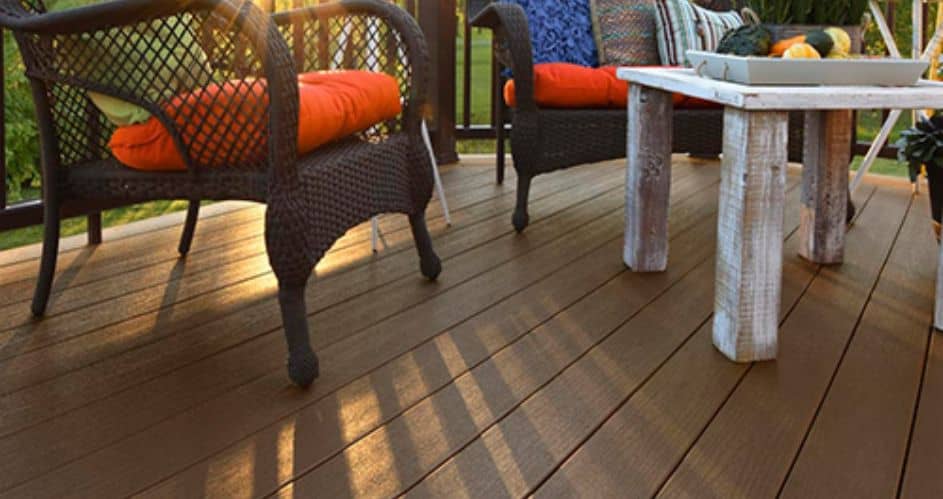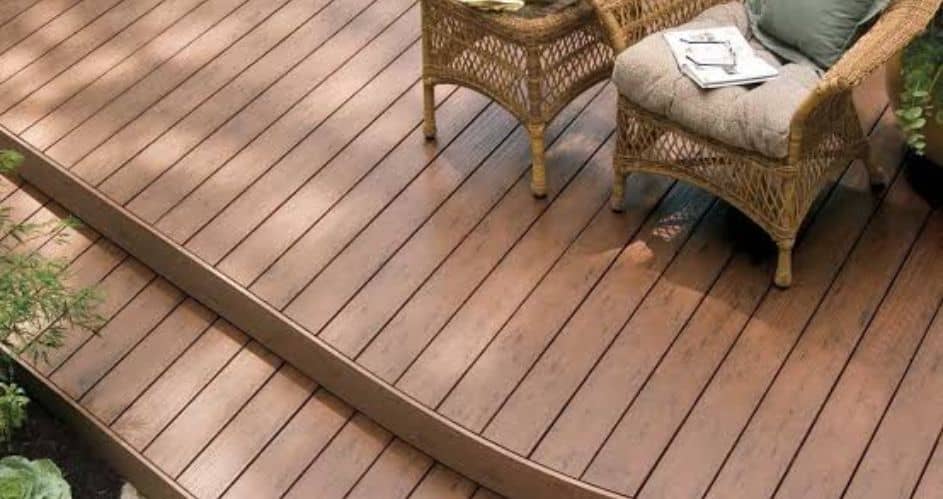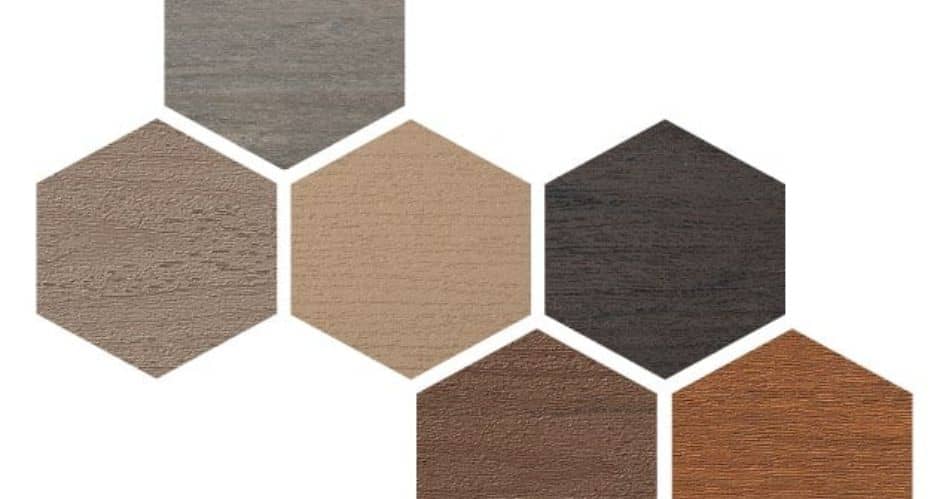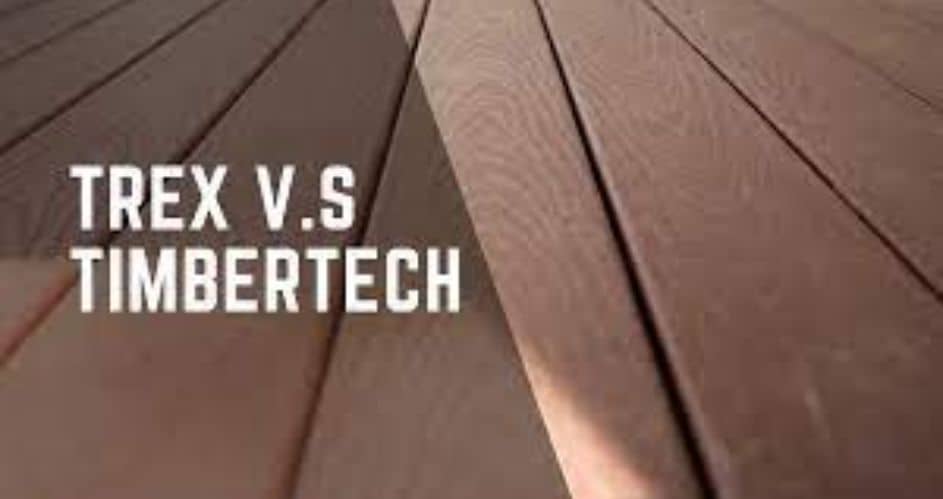
A durable and stunning-looking deck is all you need to beautify your cabin or home. Numerous advantages are there to add a sturdy deck to your home. A quality deck enhances your outdoor experience with family & friends.
You can have friends over barbecues, enjoy sunbathing during the Warmer days, and Have fun gazing at the stars on the cool nights. Therefore investing in a high-quality deck is a great idea to better the overall fun experience. However, you may need to think through what kind of material you want for your deck.
Over the last few years, homeowners have preferred composite decking over traditional wood. The main reason behind choosing composite decking is that it lasts longer, and there is absolutely no staining or sanding involved.
Comparatively, they are much more durable, so a lot of people prefer composite decking. Both of them have their pros & cons. Let’s look at the difference between both of them to have a fair idea.
Depending on the products there are a few key differences between TimberTech and Trex. A comparison of high-end vs. pocket-friendly will provide a fair idea as to what to buy. The table below clearly indicates the two manufacturers’ decking products’ comparison and range.
| Point of Comparison | Trex | TimberTech |
|---|---|---|
| Material & Capping | Provides lesser capping | Provides more capping |
| Durability | Comparatively lesser longevity | More promising |
| Warranty | Offers lesser warranty, specially ProLine over 25 years | Offers more warranty, specially TimberTech's ProLine product for over 30 years |
| Color Schemes | Offers lesser color schemes & product choices | Offers more color schemes & product choices |
| Scratch Resistance | Less scratch-resistant. Efficiently hides scratches given its color scheme, however, fades sooner | More scratch-resistant |
| Maintenance | Easy to maintain | Equally easier to maintain |
| Price | Relatively cheaper | Slightly on the higher side |
Decking War: key differences Between TimberTech & Trex
#1. Material & Capping
Environment friendly individuals can prefer Trex as its core is 95% wood fibers and recycled plastic whereas TimberTech Products are up to 80% recycled. However, it doesn’t impact quality in any way .
TimberTech boards are covered all over with a polymer cap, except TimberTech EDGE. Trex decking is capped only on the top , and leaves the sides completely exposed to the environment.
TimberTech composite decking products are more resistant to the hot sun, the moisture,and bad weather. Though the Trex deck too displays greater resistance to scratches.
TimberTech has a shallower embossment than Trex, and their composite decking products appear more natural than Trex.
#2. Durability
The TimberTech lines display strength and are highly durable to environmental extremes. It is warrantied against structural defects, wear , stains and fading.
TimberTech has a Pro series, which utilizes Mold Guard technology for extra protection. Whereas, Trex is highly durable to UV rays, heat, and chilled weather. they are warrantied against fading, stains, wear and structural issues & defects.
#3. Warranty
TimberTech Provides product warranty for life-long and a limited warranty of 50 years against stains and fading. Pro has 30- year limited warranties and Edge has limited warranties of 25 years.
Trex gives 25 years limited year residential use warranty and additionally a limited-time 25 year warranty against fading and staining.

#4. Color Schemes
TimberTech Provides 26 color options, Pro 12, Edge 6. Whereas Trex Transcend has 8 colors , Lineage comes in 2, Enhance 7, and Select has 5.

#5. Scratch Resistance
Both TimberTech and Trex offer durable polymer caps that provide high scratch resistance to protect against scratches, although it is still possible for them to incur scratches.
However, boards are protected against stains, still pets, foot traffic, furniture movement, falling debris, and weathering can cause scratches to even the toughest deck surfaces.
Trex merges its colors all along its boards, supporting to hide or mask scratches, giving it a slight benefit in the scratch tests over TimberTech ‘s composite decking. TimberTech line performs better than both manufacturers’ composite products range in the scratch test.
#6. Maintenance
Trex and Timbertech decking products are resistant to warping, cracking, mildew, mold, and rot and can last longer. However, both decking systems need frequent cleaning with a sponge or soft cloth and hot soapy water to throw out pollen, sunbathing lotions, dust, and spills.
In addition to that frequent cleaning is a must requirement to cover for warranty. While cleaning from a power washer it needs to be set below 1500 psi with a fan tip, but take care of the tip that it should never go closer than 8 inches to the board.
Sometimes moisture is a concern, as it can cause mold or mildew growth then TimberTech and Trex composite decking is again resealed using a high-quality waterproof sealer created for composite decking.
You have to just clean the board using warm soapy water with an antifungal substance. Allow it to dry and then fix the sealer as described by the manufacturer’s instructions. The sealer then prevents moisture from seeping into the decking and reacting with the organic material to turn into mold.

#7. Price
Trex and Timbertech both are quite costlier than wood decking, though they will last for a long time and don’t need staining and sanding. However, it can make them cost-effective in the future.
The price mostly depends on the series or quality chosen, color, length, width, installed hardware, and the ZIP code too where it has been bought. TimberTech makes PVC and composite decking whereas Trex manufactures composite decking.
Bottom Line: Which is Better Trex or Timbertech?

Trex or Timbertech: which one would you go for? Well, there’s no straightforward answer to it, as it entirely depends on what you are looking for. If you are looking for a budget-friendly composite decking then you would find Trex 10-20% cheaper in their mid-end and high-end decking.
Their budget-friendly line is 30% less expensive. Trex is also an eco-friendly choice as it is constituted with 15% more recycled material when compared to TimberTech.
On the longevity front, TimberTech is more promising, especially in their Azek & Pro line of products. While the Pro line has a PVC cap on all 4 sides, T Rex’s Edge line has capping only on 3 sides. Additionally, TimberTech ‘s Azek line is 100% PVC.
The capping on the composite decking acts as a shield against rough weather, staining, moisture, scratches, and fading. Trex has capping on all 3 sides of its product line. While Timbertech handles moisture better, Trex handles temperature variations slightly better.
In terms of scratches, Trex has an advantage over Timbertech. Since the color is blended throughout the decking process, the scratches blend in better. However, when it comes to fading Trex fades more than Timbertech.
Most importantly, the warranty against fading on TimberTech’s ProLine product is over 30 years in comparison to T Rex which is just 25 years old. Timbertech’s siding coverage is also higher than Trex which implies you’ll get more money if your decking needs to be replaced.
Both have resistance to stains in their Pro Line, however their budget-friendly products are more prone to stains. Both have better slip resistance, but none of these are as good as solid wood.
In terms of looks, both of their composite lines look the same; however, they are not composed of real wood so don’t expect a curb appeal as good as a plank of wood. Also, bear in mind that TimberTech’s Azek 100% PVC line looks more plasticky as compared to composite decking.
Trex offers fewer colors and product choices when compared to TimberTech. Both, however, are DIY-friendly, and easier to clean and maintain than the solid wood decking. Both have proprietary fasteners.
In a nutshell whichever meets your requirements the most out of the two and serves you the best, is your go-getter. Hopefully, by now you may have gained more understanding for your decking project.
